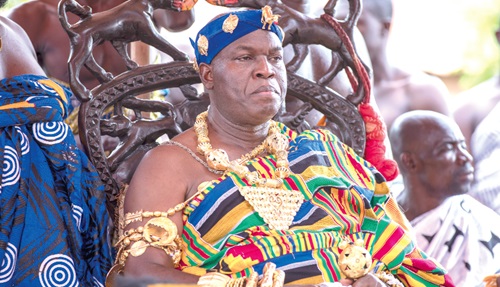
End of child marriage in Ghana - The role of traditional leaders
In Ghana, the minimum legal age for marriage is 18 years under the Children Act 1998, and yet, according to the charity ‘Child, Not Bride’, children who married by the age of 15 years old in Ghana is at 5%, while girls who married by 18 years old is at 18%.
Years back, we all believed that marrying girls off early would preserve chastity and prevent premarital sex.
That was then.
Evidence shows that what served us then is hurting not only our girls but our society. In this era, evidence abounds that protecting girls from child marriage and other harmful practices and educating them is an investment that rewards us today and pays dividends long into the future.
No wonder developed countries abolished child marriage years ago.
It is our collective responsibility as men, fathers, traditional rulers, religious authorities and parents to educate ourselves, protect our children and nurture them so their full potential is harnessed.Good traditional customs passed on by our ancestors aim to protect dignity.
When evidence shows otherwise, current custodians of our culture must review guided by experience and evidence.
It is important always to put things in context and to understand that our ancestors in establishing some of these practices were not privy to the information, resources and knowledge available today.
As modern traditional rulers, we must look closely at some of these practices and eliminate those that cause harm, deprive girls of their dignity and expose them to serious health risks such as genital fistula.
Girls forced into early marriages, some as young as nine years old, often face severe physical, emotional and psychological consequences.
They are more likely to drop out of school, suffer from early pregnancies, and are at a higher risk of dying during childbirth.
No benefits
Additionally, marrying a girl off early does not produce any benefit to modern society; nor does it affect our spiritual well-being as a nation.
On the other hand, it keeps families and our nation in perpetual poverty and under development.
As traditional rulers and custodians of culture, we are instrumental in challenging and changing the prevailing mindset and conditions that continue to perpetuate child marriage.
The Government of Ghana (GoG) has been working together with non-governmental organisations (NGOs) and international and local agencies to promote the rights and well-being of children and eliminate child marriage through legal reforms, awareness campaigns, community engagement and support for girls' education.
I entreat the government to prioritise this agenda even as we support government efforts by initiating community-based educational projects and influence policy decision-making to prioritise law enforcement against child marriages.
I implore all chiefs and queenmothers to use our durbars and other ceremonies to educate our communities on the negative consequences of child marriage while reminding them to send their daughters, nieces and granddaughters to school or face a communal tribunal to protect girls.
We entreat religious institutions in every community to make this issue a core part of their regular teaching and to be strong advocates against the practice in our quest to preserve the dignity of children.
Businesses, multinational organisations, schools and individuals must also play a role in addressing this menace.
Finally, we should actively promote education for all children leaving none behind and establish systems that could support families to know their rights and responsibilities.
Parenthood is a right with responsibilities.
Let us together confront and abolish Child Marriage in the Akwamu Traditional Area in words and deeds.
It no longer serves our interest.
The writer is the Paramount Chief of the Akwamu Traditional Area
